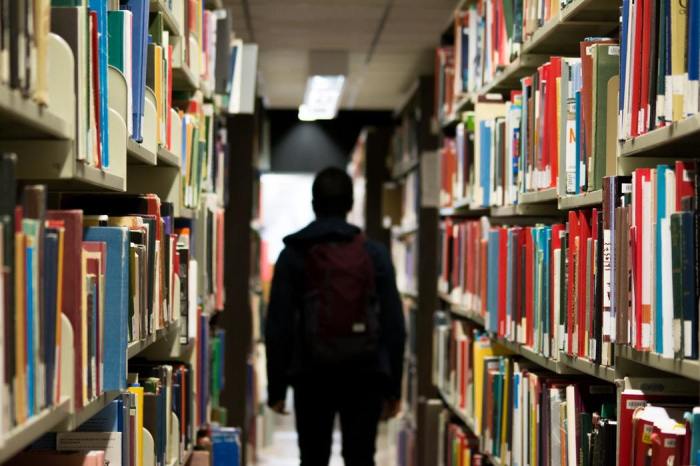Library group claims 'book banning' at record high as parents oppose sexually explicit books in schools

The American Library Association has claimed that efforts to ban or restrict books in school libraries are on the rise amid parents' concerns about sexually explicit material depicting child sex and pedophilia.
The ALA reported the data on Friday in a press release in advance of Banned Books Week, a September event that raises awareness about frequently challenged books.
Between Jan. 1 and Aug. 31, the organization documented 681 attempts to ban or restrict library resources, aimed at 1,651 titles; more than 70% of the attempts sought to ban multiple titles.
According to the ALA, the ban attempts are "on track to exceed record counts from 2021," when 729 attempts were made that targeted 1,597 book titles.
“The unprecedented number of challenges we’re seeing already this year reflects coordinated, national efforts to silence marginalized or historically underrepresented voices and deprive all of us — young people, in particular — of the chance to explore a world beyond the confines of personal experience,” ALA President Lessa Kananiʻopua Pelayo-Lozada stated in the press release.
“Librarians develop collections and resources that make knowledge and ideas widely available, so people and families are free to choose what to read.”
“Though it’s natural that we want to protect young people from some of life’s more difficult realities, the truth is that banning books does nothing to protect them from dealing with tough issues. Instead, it denies young people resources that can help them deal with the challenges that confront them,” she added.
The ALA did not immediately respond to The Christian Post’s request for comment.
Meg Kilgannon, senior fellow for education studies at the socially conservative Family Research Council, told The Christian Post that she believes the ALA’s characterization of parents' concerns over the content available in school libraries is “unfair and self-serving.”
She believes the organization is promoting itself as “oppressed” when it’s responsible for the systems that influence the reading materials provided to children.
“And the fact that they can tolerate no parental input on that whatsoever, I think, says all you need to know,” Kilgannon said.
Pelayo-Lozada asserted in the ALA's statement that efforts to prevent libraries from providing certain books are more about politics than they are about protecting children.
“Library professionals trust individuals to make their own decisions about what they read and believe,” Pelayo-Lozada continued. “ALA and our partners in the Unite Against Book Bans campaign are asking readers everywhere to stand with us in the fight against censorship.”
Kilgannon, however, asserted that no one is banning books like the ALA claims, noting that parents are free to access the materials elsewhere and put them in front of their children.
“No one who's concerned about whether or not public dollars should be spent to purchase sexual content for children is suggesting that sexual content be banned,” she said. “We're simply asking the question, what is the appropriate use of public resources and what is the responsibility of education experts in making those judgments, and can parents be involved?”
Kilgannon added that schools can determine at the local level whether a book should be removed from the library or placed in a restricted section.
“I think that good people can come together and come up with a system that allows for this very thing to be determined by each school and each school board, any school district in the country,” Kilgannon said. “That's why we have local control in schools.”
In a statement to The Associated Press, ALA's Office for Intellectual Freedom Director Deborah Caldwell-Stone, said most of the books attracting controversy focus on LGBT subjects and racism.
Some of the more heavily criticized books include Maia Kobabe’s Gender Queer and Jonathan Evison’s Lawn Boy, which contain graphic sexual content and promote pedophilia.
During a Fairfax County Public School board meeting last year in Virginia, a mother pointed to the sexually explicit and graphic images depicted in these books. Both titles were available in the district’s high school libraries.
The mother, Stacy Langton, pointed out that both books depict sexual acts, with one describing a fourth-grade boy performing fellatio on an adult man. The other contains detailed illustrations of a man having sex with a boy.
“I can’t wait to have your c*** in my mouth. I am going to give you the b*** j** of your life and then I want you inside me,” Langton read aloud from Gender Queer.
She then read from Lawn Boy: “What if I told you I touched another guy’s d***? What if I told you I sucked it? I was 10 years old, but it’s true. I s***** Doug Goble’s d***, the real estate guy, and he s***** mine too.”
A school board member advised Langton to watch her mouth, reminding her that “there are children in the audience here.” The mother argued that the library containing these titles is not an oversight on the part of the school.
Last August, other parents spoke during a Carmel Clay School Board meeting in Indiana about several books made available to students that contain pornographic sex scenes and promoted gender confusion and transgenderism.
In July, the Miami-Dade County School Board reversed its initial decision to adopt two sex education textbooks for middle schools and high schools after parents objected to how the books discussed gender identity, contraception and abortion.





























